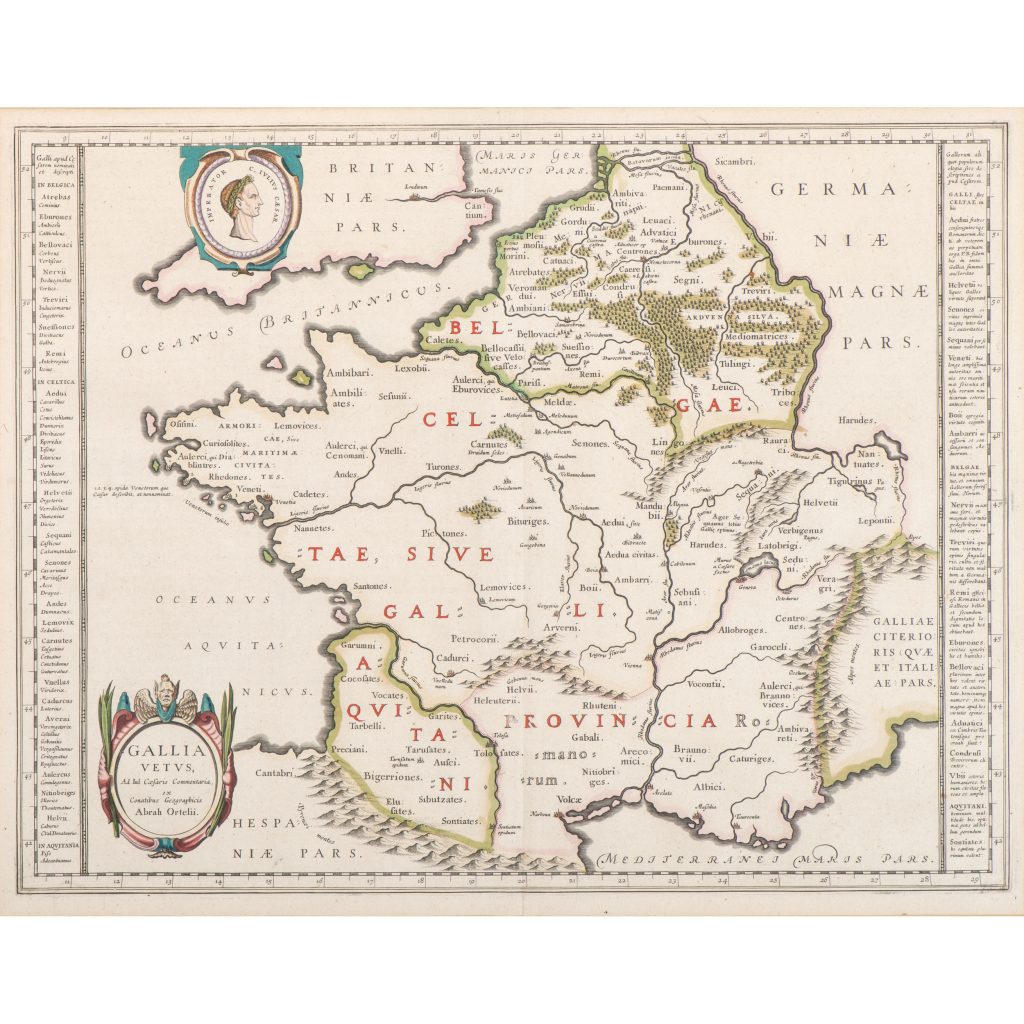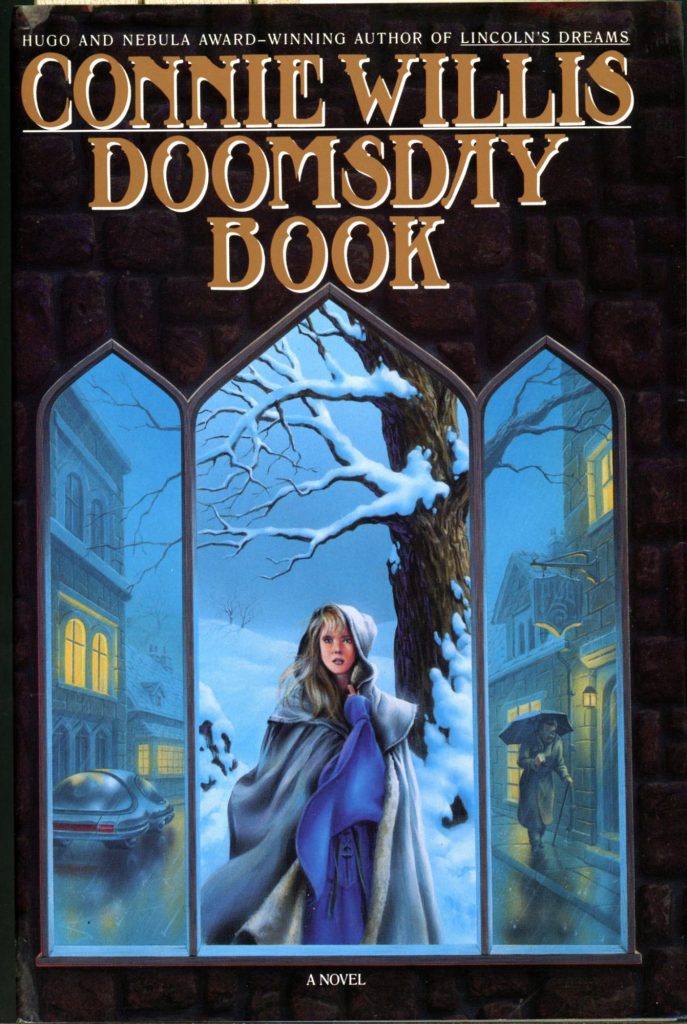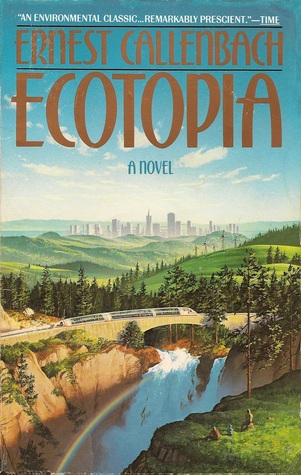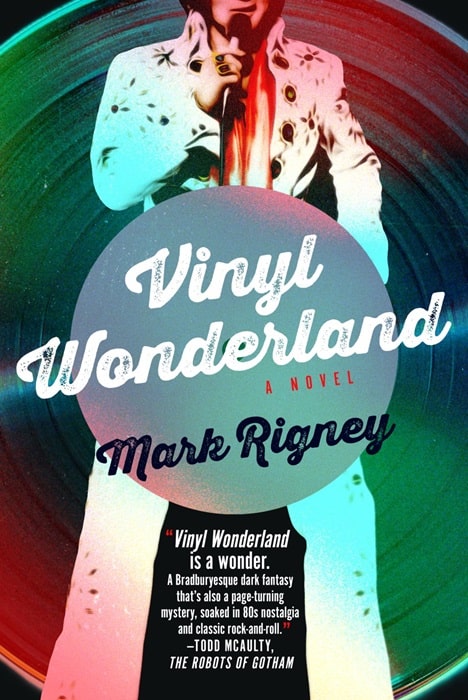Romancing the Planet: The 23rd Hero by Rebecca Anne Nguyen
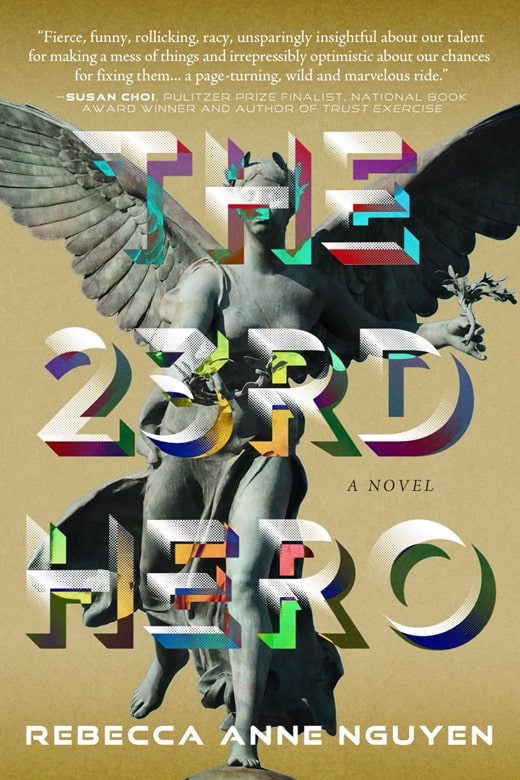 |
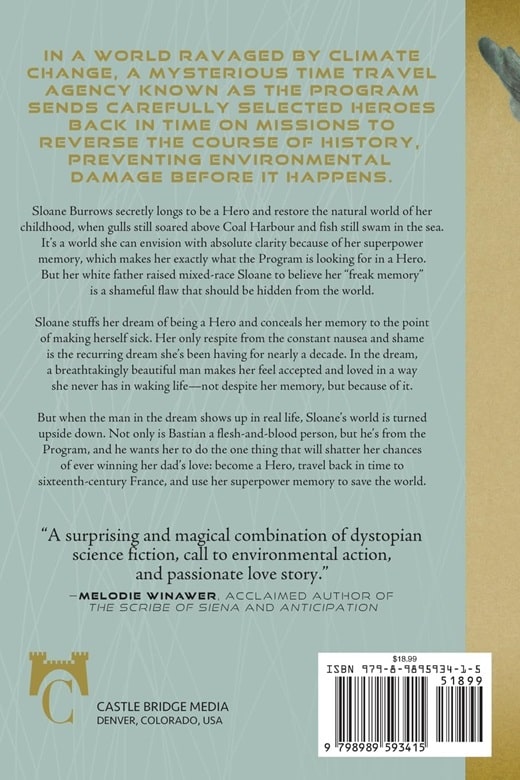 |
The 23rd Hero (Castle Bridge Media, August 13, 2024)
Hybrids are hardly unknown in the long history of fantasy and science fiction literature. It could easily be argued that the genre itself is a hybrid. In the case of Rebecca Anne Nguyen’s The 23rd Hero, this mixing of literary media is an essential element, baked in from the ground up.
The story begins by wearing its dystopian stripes firmly on its sleeve. The characters we meet in near-future Vancouver, including our hero, Sloane Burrows, live in a world of ecological collapse. Outdoors, everyone wears a filtration mask, and the last working farm in Canada closed just months before when the last of its livestock died from drinking tainted water. The handbaskets of hell, if I may mix a metaphor, have most definitely come home to roost.
Sloane’s task, at the outset, is to repair the city’s application booths, the sites where the general public can go to apply for a position in the Program, which is forever seeking the perfect volunteer to go back in time and fix, one invention or policy at a time, the historical turning points that led to the wrecked world in which Sloane and everybody else find themselves. So far, twenty-two heroes have disappeared into the past, and all have managed to make minor improvements — “Things could always be worse” — but the planet is still an ecological crash zone, and not even optimistic Sloane seems to think anything much will ever improve.
Rebecca Anne Nguyen
What Sloane has on her side is a personal super-power, one she hates: her memory is beyond photographic, it’s perfect. She has limitless and accurate recall, dating back to her earliest childhood. Unfortunately, her great talent brings mostly pain. Her father despises her and calls her a freak –– a freak that killed the love of his life, Sloane’s Khmer mother, who died in childbirth. Sloane’s self-esteem is so low that apart from her twin brother, Simon, she has just about no support structure anywhere in her life.
It’s not a spoiler to say that Sloane is eventually selected into the Program, and that she finds herself auditioning to become the all-important 23rd hero. The stakes are top-drawer: if the 23rd hero can’t re-calibrate the time-line such that humans develop along appropriately eco-friendly lines, the surviving population will be forced underground, probably forever.
So far, so good, right? And it is. Nguyen’s scene-setting and world-building keeps Sloane front-and-center. The multi-racial characters each come across as fully three-dimensional, never tossed in to check an inclusivity box. Plus, there’s a mysterious man who keeps showing up, first in Sloane’s dreams and then in real life, and his appearances gradually usher in the book’s second nature as an out-and-out romance novel.
Confession: my read of The 23rd Hero has forced me to confront my own ignorance of what, exactly, defines a romance novel. The concept of tropes are central, certain of have dogged the heels of every romance writer since Jane Austen (and Georgette Heyer). A “greatest hits” package might include “enemies to lovers,” “forced proximity,” “out of her/his league,” “opposites attracting,” “the last to know,” “mistaken identity,” “star-crossed lovers,” “marriage of convenience,” and “rich meets poor.” The 23rd Hero makes use of several of these, to good effect.
To further my education, I also perused a few contemporary (quite unrelated) romance novels in my local bookshop, and concluded that the common thread binding them together isn’t just their focus on romantic entanglements. Their unifying stylistic tic is prose that tends to be informal, chatty, and dialogue-reliant.
To be fair, many contemporary novels across multiple genres exhibit all of these traits (unlike, say, Henry James), but what’s curious and compelling about The 23rd Hero is how this tendency comes and goes in direct relation to whether Sloane and Bastian, the love of her life, appear on the page together. When they do, they have a great deal to say. When they’re apart, Nguyen retreats into Sloane’s busy, smart, fretful head, and the witty banter gives way to an entirely different pace and voice.
Structurally, author and hero have four primary realms to navigate: the ecological collapse of the present; the training grounds of the Program; the past to which the Program sends her; and the revised present to which she is eventually returned.
Training sequences are reliably entertaining, of course, and Nguyen doesn’t disappoint, but it’s Sloane’s misadventures in sixteenth century France that shine brightest. In one crucial respect, Nguyen parallels Connie Willis’s Doomsday Book, to good effect –– but I won’t spoil this by explaining. Suffice it to say that Sloane’s mission goes spectacularly awry (of course), requiring her to reinvent her objectives from the ground up.
Righting the wrongs done to Mother Earth eventually takes a back seat to the more immediate question of, will Sloane survive at all? She suffers a good deal, in particular at the hands of a lecherous bishop, and Nguyen doesn’t pull any punches in describing the abuse Sloane endures. Nguyen is at her best in these sequences, and then later, in charting Sloane’s determined, specific path forward, one that will allow for future intimacy despite what she’s gone through. No doubt Sloane’s path wouldn’t work for everyone, but it’s presented convincingly, with sensitivity.
Green or eco-fiction is having a long moment in the sun, as it should, and we’ve come a long way from The Sheep Look Up and Ecotopia. Some books will present specific technical solutions to discrete problems, while others, like The 23rd Hero, will favor adventure over the less glamorous muck of policy that promotes needed innovation. Luckily, there’s room for all of that in the canon, and more. Romance, for example. Family dysfunction. Time-hopping.
That we readers can get such intricate, fully formed story-telling from a debut author at a small publishing house is cause in and of itself for optimism. Just like the environmental movement overall, a certain decentralization in reading and publishing may be just what Dr. Mother Nature ordered.
Onward.
Mark Rigney is a writer and long-time Black Gate blogger. His work on this site includes original fiction and perennially popular posts like “Adventures in Spellcraft: Rope Trick.” His new novel, Vinyl Wonderland, dropped on June 25th, 2024. Reviewer Rich Horton said of Vinyl Wonderland, “I was brought to tears, tears I trusted. A lovely work.” His favorite review quote so far comes from Instagram: “Holy crap on a cracker, it’s so good.” A preview post can be found HERE, while his website lives over THERE.

